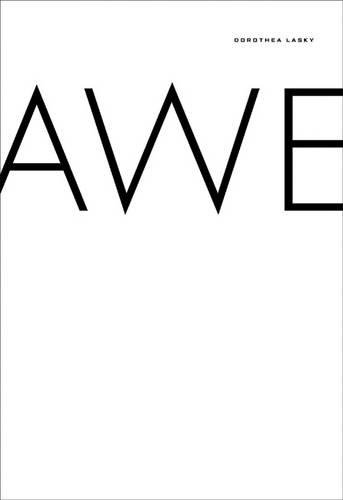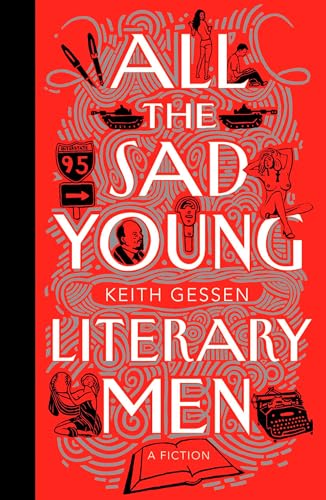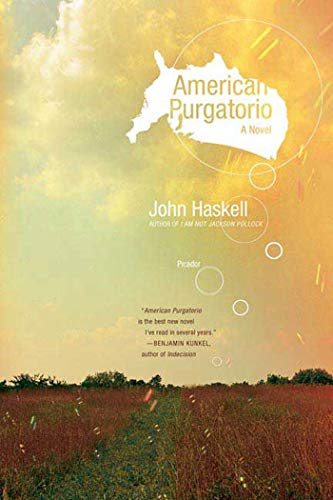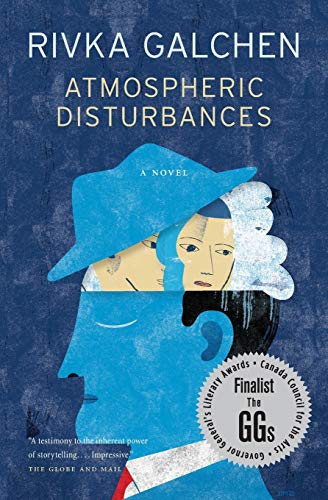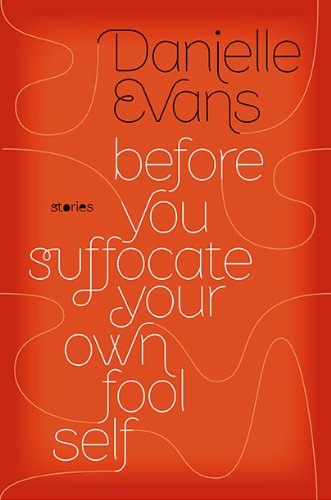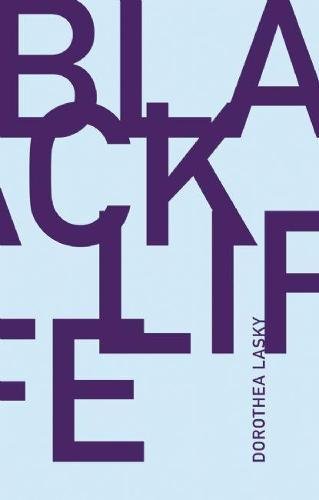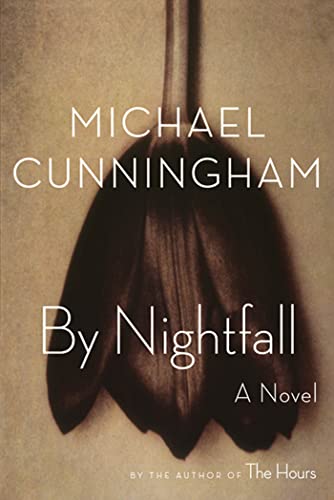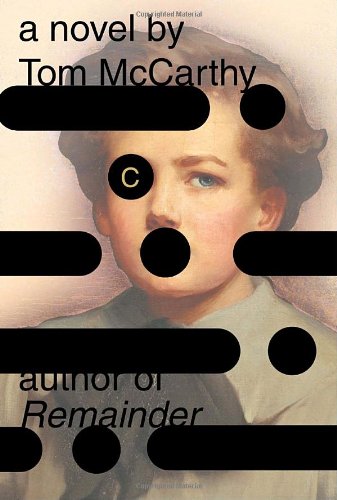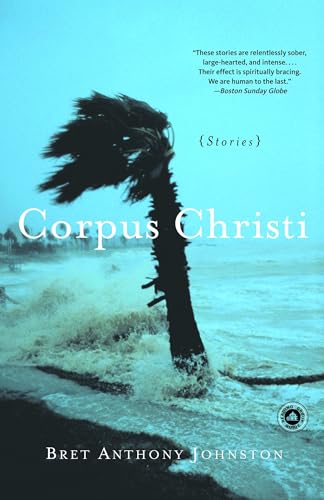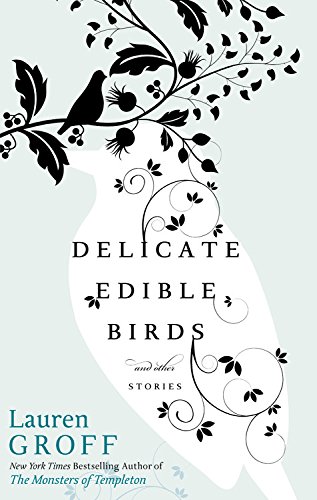Mentioned in:
Most Anticipated: The Great Winter 2025 Preview
It's cold, it's grey, its bleak—but winter, at the very least, brings with it a glut of anticipation-inducing books. Here you’ll find nearly 100 titles that we’re excited to cozy up with this season. Some we’ve already read in galley form; others we’re simply eager to devour based on their authors, subjects, or blurbs. We'd love for you to find your next great read among them.
The Millions will be taking a hiatus for the next few months, but we hope to see you soon.
—Sophia Stewart, editor
January
The Legend of Kumai by Shirato Sanpei, tr. Richard Rubinger (Drawn & Quarterly)
The epic 10-volume series, a touchstone of longform storytelling in manga now published in English for the first time, follows outsider Kamui in 17th-century Japan as he fights his way up from peasantry to the prized role of ninja. —Michael J. Seidlinger
The Life of Herod the Great by Zora Neale Hurston (Amistad)
In the years before her death in 1960, Hurston was at work on what she envisioned as a continuation of her 1939 novel, Moses, Man of the Mountain. Incomplete, nearly lost to fire, and now published for the first time alongside scholarship from editor Deborah G. Plant, Hurston’s final manuscript reimagines Herod, villain of the New Testament Gospel accounts, as a magnanimous and beloved leader of First Century Judea. —Jonathan Frey
Mood Machine by Liz Pelly (Atria)
When you eagerly posted your Spotify Wrapped last year, did you notice how much of what you listened to tended to sound... the same? Have you seen all those links to Bandcamp pages your musician friends keep desperately posting in the hopes that maybe, just maybe, you might give them money for their art? If so, this book is for you. —John H. Maher
My Country, Africa by Andrée Blouin (Verso)
African revolutionary Blouin recounts a radical life steeped in activism in this vital autobiography, from her beginnings in a colonial orphanage to her essential role in the continent's midcentury struggles for decolonization. —Sophia M. Stewart
The First and Last King of Haiti by Marlene L. Daut (Knopf)
Donald Trump repeatedly directs extraordinary animus towards Haiti and Haitians. This biography of Henry Christophe—the man who played a pivotal role in the Haitian Revolution—might help Americans understand why. —Claire Kirch
The Bewitched Bourgeois by Dino Buzzati, tr. Lawrence Venuti (NYRB)
This is the second story collection, and fifth book, by the absurdist-leaning midcentury Italian writer—whose primary preoccupation was war novels that blend the brutal with the fantastical—to get the NYRB treatment. May it not be the last. —JHM
Y2K by Colette Shade (Dey Street)
The recent Y2K revival mostly makes me feel old, but Shade's essay collection deftly illuminates how we got here, connecting the era's social and political upheavals to today. —SMS
Darkmotherland by Samrat Upadhyay (Penguin)
In a vast dystopian reimagining of Nepal, Upadhyay braids narratives of resistance (political, personal) and identity (individual, societal) against a backdrop of natural disaster and state violence. The first book in nearly a decade from the Whiting Award–winning author of Arresting God in Kathmandu, this is Upadhyay’s most ambitious yet. —JF
Metamorphosis by Ross Jeffery (Truborn)
From the author of I Died Too, But They Haven’t Buried Me Yet, a woman leads a double life as she loses her grip on reality by choice, wearing a mask that reflects her inner demons, as she descends into a hell designed to reveal the innermost depths of her grief-stricken psyche. —MJS
The Containment by Michelle Adams (FSG)
Legal scholar Adams charts the failure of desegregation in the American North through the story of the struggle to integrate suburban schools in Detroit, which remained almost completely segregated nearly two decades after Brown v. Board. —SMS
Death of the Author by Nnedi Okorafor (Morrow)
African Futurist Okorafor’s book-within-a-book offers interchangeable cover images, one for the story of a disabled, Black visionary in a near-present day and the other for the lead character’s speculative posthuman novel, Rusted Robots. Okorafor deftly keeps the alternating chapters and timelines in conversation with one another. —Nathalie op de Beeck
Open Socrates by Agnes Callard (Norton)
Practically everything Agnes Callard says or writes ushers in a capital-D Discourse. (Remember that profile?) If she can do the same with a study of the philosophical world’s original gadfly, culture will be better off for it. —JHM
Aflame by Pico Iyer (Riverhead)
Presumably he finds time to eat and sleep in there somewhere, but it certainly appears as if Iyer does nothing but travel and write. His latest, following 2023’s The Half Known Life, makes a case for the sublimity, and necessity, of silent reflection. —JHM
The In-Between Bookstore by Edward Underhill (Avon)
A local bookstore becomes a literal portal to the past for a trans man who returns to his hometown in search of a fresh start in Underhill's tender debut. —SMS
Good Girl by Aria Aber (Hogarth)
Aber, an accomplished poet, turns to prose with a debut novel set in the electric excess of Berlin’s bohemian nightlife scene, where a young German-born Afghan woman finds herself enthralled by an expat American novelist as her country—and, soon, her community—is enflamed by xenophobia. —JHM
The Orange Eats Creeps by Grace Krilanovich (Two Dollar Radio)
Krilanovich’s 2010 cult classic, about a runaway teen with drug-fueled ESP who searches for her missing sister across surreal highways while being chased by a killer named Dactyl, gets a much-deserved reissue. —MJS
Mona Acts Out by Mischa Berlinski (Liveright)
In the latest novel from the National Book Award finalist, a 50-something actress reevaluates her life and career when #MeToo allegations roil the off-off-Broadway Shakespearean company that has cast her in the role of Cleopatra. —SMS
Something Rotten by Andrew Lipstein (FSG)
A burnt-out couple leave New York City for what they hope will be a blissful summer in Denmark when their vacation derails after a close friend is diagnosed with a rare illness and their marriage is tested by toxic influences. —MJS
The Sun Won't Come Out Tomorrow by Kristen Martin (Bold Type)
Martin's debut is a cultural history of orphanhood in America, from the 1800s to today, interweaving personal narrative and archival research to upend the traditional "orphan narrative," from Oliver Twist to Annie. —SMS
We Do Not Part by Han Kang, tr. E. Yaewon and Paige Aniyah Morris (Hogarth)
Kang’s Nobel win last year surprised many, but the consistency of her talent certainly shouldn't now. The latest from the author of The Vegetarian—the haunting tale of a Korean woman who sets off to save her injured friend’s pet at her home in Jeju Island during a deadly snowstorm—will likely once again confront the horrors of history with clear eyes and clarion prose. —JHM
We Are Dreams in the Eternal Machine by Deni Ellis Béchard (Milkweed)
As the conversation around emerging technology skews increasingly to apocalyptic and utopian extremes, Béchard’s latest novel adopts the heterodox-to-everyone approach of embracing complexity. Here, a cadre of characters is isolated by a rogue but benevolent AI into controlled environments engineered to achieve their individual flourishing. The AI may have taken over, but it only wants to best for us. —JF
The Harder I Fight the More I Love You by Neko Case (Grand Central)
Singer-songwriter Case, a country- and folk-inflected indie rocker and sometime vocalist for the New Pornographers, takes her memoir’s title from her 2013 solo album. Followers of PNW music scene chronicles like Kathleen Hanna’s Rebel Girl and drummer Steve Moriarty’s Mia Zapata and the Gits will consider Case’s backstory a must-read. —NodB
The Loves of My Life by Edmund White (Bloomsbury)
The 85-year-old White recounts six decades of love and sex in this candid and erotic memoir, crafting a landmark work of queer history in the process. Seminal indeed. —SMS
Blob by Maggie Su (Harper)
In Su’s hilarious debut, Vi Liu is a college dropout working a job she hates, nothing really working out in her life, when she stumbles across a sentient blob that she begins to transform as her ideal, perfect man that just might resemble actor Ryan Gosling. —MJS
Sinkhole and Other Inexplicable Voids by Leyna Krow (Penguin)
Krow’s debut novel, Fire Season, traced the combustible destinies of three Northwest tricksters in the aftermath of an 1889 wildfire. In her second collection of short fiction, Krow amplifies surreal elements as she tells stories of ordinary lives. Her characters grapple with deadly viruses, climate change, and disasters of the Anthropocene’s wilderness. —NodB
Black in Blues by Imani Perry (Ecco)
The National Book Award winner—and one of today's most important thinkers—returns with a masterful meditation on the color blue and its role in Black history and culture. —SMS
Too Soon by Betty Shamieh (Avid)
The timely debut novel by Shamieh, a playwright, follows three generations of Palestinian American women as they navigate war, migration, motherhood, and creative ambition. —SMS
How to Talk About Love by Plato, tr. Armand D'Angour (Princeton UP)
With modern romance on its last legs, D'Angour revisits Plato's Symposium, mining the philosopher's masterwork for timeless, indispensable insights into love, sex, and attraction. —SMS
At Dark, I Become Loathsome by Eric LaRocca (Blackstone)
After Ashley Lutin’s wife dies, he takes the grieving process in a peculiar way, posting online, “If you're reading this, you've likely thought that the world would be a better place without you,” and proceeds to offer a strange ritual for those that respond to the line, equally grieving and lost, in need of transcendence. —MJS
February
No One Knows by Osamu Dazai, tr. Ralph McCarthy (New Directions)
A selection of stories translated in English for the first time, from across Dazai’s career, demonstrates his penchant for exploring conformity and society’s often impossible expectations of its members. —MJS
Mutual Interest by Olivia Wolfgang-Smith (Bloomsbury)
This queer love story set in post–Gilded Age New York, from the author of Glassworks (and one of my favorite Millions essays to date), explores on sex, power, and capitalism through the lives of three queer misfits. —SMS
Pure, Innocent Fun by Ira Madison III (Random House)
This podcaster and pop culture critic spoke to indie booksellers at a fall trade show I attended, regaling us with key cultural moments in the 1990s that shaped his youth in Milwaukee and being Black and gay. If the book is as clever and witty as Madison is, it's going to be a winner. —CK
Gliff by Ali Smith (Pantheon)
The Scottish author has been on the scene since 1997 but is best known today for a seasonal quartet from the late twenty-teens that began in 2016 with Autumn and ended in 2020 with Summer. Here, she takes the genre turn, setting two children and a horse loose in an authoritarian near future. —JHM
Land of Mirrors by Maria Medem, tr. Aleshia Jensen and Daniela Ortiz (D&Q)
This hypnotic graphic novel from one of Spain's most celebrated illustrators follows Antonia, the sole inhabitant of a deserted town, on a color-drenched quest to preserve the dying flower that gives her purpose. —SMS
Bibliophobia by Sarah Chihaya (Random House)
As odes to the "lifesaving power of books" proliferate amid growing literary censorship, Chihaya—a brilliant critic and writer—complicates this platitude in her revelatory memoir about living through books and the power of reading to, in the words of blurber Namwali Serpell, "wreck and redeem our lives." —SMS
Reading the Waves by Lidia Yuknavitch (Riverhead)
Yuknavitch continues the personal story she began in her 2011 memoir, The Chronology of Water. More than a decade after that book, and nearly undone by a history of trauma and the death of her daughter, Yuknavitch revisits the solace she finds in swimming (she was once an Olympic hopeful) and in her literary community. —NodB
The Dissenters by Youssef Rakha (Graywolf)
A son reevaluates the life of his Egyptian mother after her death in Rakha's novel. Recounting her sprawling life story—from her youth in 1960s Cairo to her experience of the 2011 Tahrir Square protests—a vivid portrait of faith, feminism, and contemporary Egypt emerges. —SMS
Tetra Nova by Sophia Terazawa (Deep Vellum)
Deep Vellum has a particularly keen eye for fiction in translation that borders on the unclassifiable. This debut from a poet the press has published twice, billed as the story of “an obscure Roman goddess who re-imagines herself as an assassin coming to terms with an emerging performance artist identity in the late-20th century,” seems right up that alley. —JHM
David Lynch's American Dreamscape by Mike Miley (Bloomsbury)
Miley puts David Lynch's films in conversation with literature and music, forging thrilling and unexpected connections—between Eraserhead and "The Yellow Wallpaper," Inland Empire and "mixtape aesthetics," Lynch and the work of Cormac McCarthy. Lynch devotees should run, not walk. —SMS
There's No Turning Back by Alba de Céspedes, tr. Ann Goldstein (Washington Square)
Goldstein is an indomitable translator. Without her, how would you read Ferrante? Here, she takes her pen to a work by the great Cuban-Italian writer de Céspedes, banned in the fascist Italy of the 1930s, that follows a group of female literature students living together in a Roman boarding house. —JHM
Beta Vulgaris by Margie Sarsfield (Norton)
Named for the humble beet plant and meaning, in a rough translation from the Latin, "vulgar second," Sarsfield’s surreal debut finds a seasonal harvest worker watching her boyfriend and other colleagues vanish amid “the menacing but enticing siren song of the beets.” —JHM
People From Oetimu by Felix Nesi, tr. Lara Norgaard (Archipelago)
The center of Nesi’s wide-ranging debut novel is a police station on the border between East and West Timor, where a group of men have gathered to watch the final of the 1998 World Cup while a political insurgency stirs without. Nesi, in English translation here for the first time, circles this moment broadly, reaching back to the various colonialist projects that have shaped Timor and the lives of his characters. —JF
Brother Brontë by Fernando A. Flores (MCD)
This surreal tale, set in a 2038 dystopian Texas is a celebration of resistance to authoritarianism, a mash-up of Olivia Butler, Ray Bradbury, and John Steinbeck. —CK
Alligator Tears by Edgar Gomez (Crown)
The High-Risk Homosexual author returns with a comic memoir-in-essays about fighting for survival in the Sunshine State, exploring his struggle with poverty through the lens of his queer, Latinx identity. —SMS
Theory & Practice by Michelle De Kretser (Catapult)
This lightly autofictional novel—De Krester's best yet, and one of my favorite books of this year—centers on a grad student's intellectual awakening, messy romantic entanglements, and fraught relationship with her mother as she minds the gap between studying feminist theory and living a feminist life. —SMS
The Lamb by Lucy Rose (Harper)
Rose’s cautionary and caustic folk tale is about a mother and daughter who live alone in the forest, quiet and tranquil except for the visitors the mother brings home, whom she calls “strays,” wining and dining them until they feast upon the bodies. —MJS
Disposable by Sarah Jones (Avid)
Jones, a senior writer for New York magazine, gives a voice to America's most vulnerable citizens, who were deeply and disproportionately harmed by the pandemic—a catastrophe that exposed the nation's disregard, if not outright contempt, for its underclass. —SMS
No Fault by Haley Mlotek (Viking)
Written in the aftermath of the author's divorce from the man she had been with for 12 years, this "Memoir of Romance and Divorce," per its subtitle, is a wise and distinctly modern accounting of the end of a marriage, and what it means on a personal, social, and literary level. —SMS
Enemy Feminisms by Sophie Lewis (Haymarket)
Lewis, one of the most interesting and provocative scholars working today, looks at certain malignant strains of feminism that have done more harm than good in her latest book. In the process, she probes the complexities of gender equality and offers an alternative vision of a feminist future. —SMS
Lion by Sonya Walger (NYRB)
Walger—an successful actor perhaps best known for her turn as Penny Widmore on Lost—debuts with a remarkably deft autobiographical novel (published by NYRB no less!) about her relationship with her complicated, charismatic Argentinian father. —SMS
The Voices of Adriana by Elvira Navarro, tr. Christina MacSweeney (Two Lines)
A Spanish writer and philosophy scholar grieves her mother and cares for her sick father in Navarro's innovative, metafictional novel. —SMS
Autotheories ed. Alex Brostoff and Vilashini Cooppan (MIT)
Theory wonks will love this rigorous and surprisingly playful survey of the genre of autotheory—which straddles autobiography and critical theory—with contributions from Judith Butler, Jamieson Webster, and more.
Fagin the Thief by Allison Epstein (Doubleday)
I enjoy retellings of classic novels by writers who turn the spotlight on interesting minor characters. This is an excursion into the world of Charles Dickens, told from the perspective iconic thief from Oliver Twist. —CK
Crush by Ada Calhoun (Viking)
Calhoun—the masterful memoirist behind the excellent Also A Poet—makes her first foray into fiction with a debut novel about marriage, sex, heartbreak, all-consuming desire. —SMS
Show Don't Tell by Curtis Sittenfeld (Random House)
Sittenfeld's observations in her writing are always clever, and this second collection of short fiction includes a tale about the main character in Prep, who visits her boarding school decades later for an alumni reunion. —CK
Right-Wing Woman by Andrea Dworkin (Picador)
One in a trio of Dworkin titles being reissued by Picador, this 1983 meditation on women and American conservatism strikes a troublingly resonant chord in the shadow of the recent election, which saw 45% of women vote for Trump. —SMS
The Talent by Daniel D'Addario (Scout)
If your favorite season is awards, the debut novel from D'Addario, chief correspondent at Variety, weaves an awards-season yarn centering on five stars competing for the Best Actress statue at the Oscars. If you know who Paloma Diamond is, you'll love this. —SMS
Death Takes Me by Cristina Rivera Garza, tr. Sarah Booker and Robin Myers (Hogarth)
The Pulitzer winner’s latest is about an eponymously named professor who discovers the body of a mutilated man with a bizarre poem left with the body, becoming entwined in the subsequent investigation as more bodies are found. —MJS
The Strange Case of Jane O. by Karen Thompson Walker (Random House)
Jane goes missing after a sudden a debilitating and dreadful wave of symptoms that include hallucinations, amnesia, and premonitions, calling into question the foundations of her life and reality, motherhood and buried trauma. —MJS
Song So Wild and Blue by Paul Lisicky (HarperOne)
If it weren’t Joni Mitchell’s world with all of us just living in it, one might be tempted to say the octagenarian master songstress is having a moment: this memoir of falling for the blue beauty of Mitchell’s work follows two other inventive books about her life and legacy: Ann Powers's Traveling and Henry Alford's I Dream of Joni. —JHM
Mornings Without Mii by Mayumi Inaba, tr. Ginny Tapley (FSG)
A woman writer meditates on solitude, art, and independence alongside her beloved cat in Inaba's modern classic—a book so squarely up my alley I'm somehow embarrassed. —SMS
True Failure by Alex Higley (Coffee House)
When Ben loses his job, he decides to pretend to go to work while instead auditioning for Big Shot, a popular reality TV show that he believes might be a launchpad for his future successes. —MJS
March
Woodworking by Emily St. James (Crooked Reads)
Those of us who have been reading St. James since the A.V. Club days may be surprised to see this marvelous critic's first novel—in this case, about a trans high school teacher befriending one of her students, the only fellow trans woman she’s ever met—but all the more excited for it. —JHM
Optional Practical Training by Shubha Sunder (Graywolf)
Told as a series of conversations, Sunder’s debut novel follows its recently graduated Indian protagonist in 2006 Cambridge, Mass., as she sees out her student visa teaching in a private high school and contriving to find her way between worlds that cannot seem to comprehend her. Quietly subversive, this is an immigration narrative to undermine the various reductionist immigration narratives of our moment. —JF
Love, Queenie by Mayukh Sen (Norton)
Merle Oberon, one of Hollywood's first South Asian movie stars, gets her due in this engrossing biography, which masterfully explores Oberon's painful upbringing, complicated racial identity, and much more. —SMS
The Age of Choice by Sophia Rosenfeld (Princeton UP)
At a time when we are awash with options—indeed, drowning in them—Rosenfeld's analysis of how our modingn idea of "freedom" became bound up in the idea of personal choice feels especially timely, touching on everything from politics to romance. —SMS
Sucker Punch by Scaachi Koul (St. Martin's)
One of the internet's funniest writers follows up One Day We'll All Be Dead and None of This Will Matter with a sharp and candid collection of essays that sees her life go into a tailspin during the pandemic, forcing her to reevaluate her beliefs about love, marriage, and what's really worth fighting for. —SMS
The Mysterious Disappearance of the Marquise of Loria by José Donoso, tr. Megan McDowell (New Directions)
The ever-excellent McDowell translates yet another work by the influential Chilean author for New Directions, proving once again that Donoso had a knack for titles: this one follows up 2024’s behemoth The Obscene Bird of Night. —JHM
Remember This by Anthony Giardina (FSG)
On its face, it’s another book about a writer living in Brooklyn. A layer deeper, it’s a book about fathers and daughters, occupations and vocations, ethos and pathos, failure and success. —JHM
Ultramarine by Mariette Navarro (Deep Vellum)
In this metaphysical and lyrical tale, a captain known for sticking to protocol begins losing control not only of her crew and ship but also her own mind. —MJS
We Tell Ourselves Stories by Alissa Wilkinson (Liveright)
Amid a spate of new books about Joan Didion published since her death in 2021, this entry by Wilkinson (one of my favorite critics working today) stands out for its approach, which centers Hollywood—and its meaning-making apparatus—as an essential key to understanding Didion's life and work. —SMS
Seven Social Movements that Changed America by Linda Gordon (Norton)
This book—by a truly renowned historian—about the power that ordinary citizens can wield when they organize to make their community a better place for all could not come at a better time. —CK
Mothers and Other Fictional Characters by Nicole Graev Lipson (Chronicle Prism)
Lipson reconsiders the narratives of womanhood that constrain our lives and imaginations, mining the canon for alternative visions of desire, motherhood, and more—from Kate Chopin and Gwendolyn Brooks to Philip Roth and Shakespeare—to forge a new story for her life. —SMS
Goddess Complex by Sanjena Sathian (Penguin)
Doppelgängers have been done to death, but Sathian's examination of Millennial womanhood—part biting satire, part twisty thriller—breathes new life into the trope while probing the modern realities of procreation, pregnancy, and parenting. —SMS
Stag Dance by Torrey Peters (Random House)
The author of Detransition, Baby offers four tales for the price of one: a novel and three stories that promise to put gender in the crosshairs with as sharp a style and swagger as Peters’ beloved latest. The novel even has crossdressing lumberjacks. —JHM
On Breathing by Jamieson Webster (Catapult)
Webster, a practicing psychoanalyst and a brilliant writer to boot, explores that most basic human function—breathing—to address questions of care and interdependence in an age of catastrophe. —SMS
Unusual Fragments: Japanese Stories (Two Lines)
The stories of Unusual Fragments, including work by Yoshida Tomoko, Nobuko Takai, and other seldom translated writers from the same ranks as Abe and Dazai, comb through themes like alienation and loneliness, from a storm chaser entering the eye of a storm to a medical student observing a body as it is contorted into increasingly violent positions. —MJS
The Antidote by Karen Russell (Knopf)
Russell has quipped that this Dust Bowl story of uncanny happenings in Nebraska is the “drylandia” to her 2011 Florida novel, Swamplandia! In this suspenseful account, a woman working as a so-called prairie witch serves as a storage vault for her townspeople’s most troubled memories of migration and Indigenous genocide. With a murderer on the loose, a corrupt sheriff handling the investigation, and a Black New Deal photographer passing through to document Americana, the witch loses her memory and supernatural events parallel the area’s lethal dust storms. —NodB
On the Clock by Claire Baglin, tr. Jordan Stump (New Directions)
Baglin's bildungsroman, translated from the French, probes the indignities of poverty and service work from the vantage point of its 20-year-old narrator, who works at a fast-food joint and recalls memories of her working-class upbringing. —SMS
Motherdom by Alex Bollen (Verso)
Parenting is difficult enough without dealing with myths of what it means to be a good mother. I who often felt like a failure as a mother appreciate Bollen's focus on a more realistic approach to parenting. —CK
The Magic Books by Anne Lawrence-Mathers (Yale UP)
For that friend who wants to concoct the alchemical elixir of life, or the person who cannot quit Susanna Clark’s Jonathan Strange and Mr. Norrell, Lawrence-Mathers collects 20 illuminated medieval manuscripts devoted to magical enterprise. Her compendium includes European volumes on astronomy, magical training, and the imagined intersection between science and the supernatural. —NodB
Theft by Abdulrazak Gurnah (Riverhead)
The first novel by the Tanzanian-British Nobel laureate since his surprise win in 2021 is a story of class, seismic cultural change, and three young people in a small Tanzania town, caught up in both as their lives dramatically intertwine. —JHM
Twelve Stories by American Women, ed. Arielle Zibrak (Penguin Classics)
Zibrak, author of a delicious volume on guilty pleasures (and a great essay here at The Millions), curates a dozen short stories by women writers who have long been left out of American literary canon—most of them women of color—from Frances Ellen Watkins Harper to Zitkala-Ša. —SMS
I'll Love You Forever by Giaae Kwon (Holt)
K-pop’s sky-high place in the fandom landscape made a serious critical assessment inevitable. This one blends cultural criticism with memoir, using major artists and their careers as a lens through which to view the contemporary Korean sociocultural landscape writ large. —JHM
The Buffalo Hunter Hunter by Stephen Graham Jones (Saga)
Jones, the acclaimed author of The Only Good Indians and the Indian Lake Trilogy, offers a unique tale of historical horror, a revenge tale about a vampire descending upon the Blackfeet reservation and the manifold of carnage in their midst. —MJS
True Mistakes by Lena Moses-Schmitt (University of Arkansas Press)
Full disclosure: Lena is my friend. But part of why I wanted to be her friend in the first place is because she is a brilliant poet. Selected by Patricia Smith as a finalist for the Miller Williams Poetry Prize, and blurbed by the great Heather Christle and Elisa Gabbert, this debut collection seeks to turn "mistakes" into sites of possibility. —SMS
Perfection by Vicenzo Latronico, tr. Sophie Hughes (NYRB)
Anna and Tom are expats living in Berlin enjoying their freedom as digital nomads, cultivating their passion for capturing perfect images, but after both friends and time itself moves on, their own pocket of creative freedom turns boredom, their life trajectories cast in doubt. —MJS
Guatemalan Rhapsody by Jared Lemus (Ecco)
Jemus's debut story collection paint a composite portrait of the people who call Guatemala home—and those who have left it behind—with a cast of characters that includes a medicine man, a custodian at an underfunded college, wannabe tattoo artists, four orphaned brothers, and many more.
Pacific Circuit by Alexis Madrigal (MCD)
The Oakland, Calif.–based contributing writer for the Atlantic digs deep into the recent history of a city long under-appreciated and under-served that has undergone head-turning changes throughout the rise of Silicon Valley. —JHM
Barbara by Joni Murphy (Astra)
Described as "Oppenheimer by way of Lucia Berlin," Murphy's character study follows the titular starlet as she navigates the twinned convulsions of Hollywood and history in the Atomic Age.
Sister Sinner by Claire Hoffman (FSG)
This biography of the fascinating Aimee Semple McPherson, America's most famous evangelist, takes religion, fame, and power as its subjects alongside McPherson, whose life was suffused with mystery and scandal. —SMS
Trauma Plot by Jamie Hood (Pantheon)
In this bold and layered memoir, Hood confronts three decades of sexual violence and searches for truth among the wreckage. Kate Zambreno calls Trauma Plot the work of "an American Annie Ernaux." —SMS
Hey You Assholes by Kyle Seibel (Clash)
Seibel’s debut story collection ranges widely from the down-and-out to the downright bizarre as he examines with heart and empathy the strife and struggle of his characters. —MJS
James Baldwin by Magdalena J. Zaborowska (Yale UP)
Zaborowska examines Baldwin's unpublished papers and his material legacy (e.g. his home in France) to probe about the great writer's life and work, as well as the emergence of the "Black queer humanism" that Baldwin espoused. —CK
Stop Me If You've Heard This One by Kristen Arnett (Riverhead)
Arnett is always brilliant and this novel about the relationship between Cherry, a professional clown, and her magician mentor, "Margot the Magnificent," provides a fascinating glimpse of the unconventional lives of performance artists. —CK
Paradise Logic by Sophie Kemp (S&S)
The deal announcement describes the ever-punchy writer’s debut novel with an infinitely appealing appellation: “debauched picaresque.” If that’s not enough to draw you in, the truly unhinged cover should be. —JHM
[millions_email]
A Year in Reading: 2024
Welcome to the 20th (!) installment of The Millions' annual Year in Reading series, which gathers together some of today's most exciting writers and thinkers to share the books that shaped their year. YIR is not a collection of yearend best-of lists; think of it, perhaps, as an assemblage of annotated bibliographies. We've invited contributors to reflect on the books they read this year—an intentionally vague prompt—and encouraged them to approach the assignment however they choose.
In writing about our reading lives, as YIR contributors are asked to do, we inevitably write about our personal lives, our inner lives. This year, a number of contributors read their way through profound grief and serious illness, through new parenthood and cross-country moves. Some found escape in frothy romances, mooring in works of theology, comfort in ancient epic poetry. More than one turned to the wisdom of Ursula K. Le Guin. Many describe a book finding them just when they needed it.
Interpretations of the assignment were wonderfully varied. One contributor, a music critic, considered the musical analogs to the books she read, while another mapped her reads from this year onto constellations. Most people's reading was guided purely by pleasure, or else a desire to better understand events unfolding in their lives or larger the world. Yet others centered their reading around a certain sense of duty: this year one contributor committed to finishing the six Philip Roth novels he had yet to read, an undertaking that he likens to “eating a six-pack of paper towels.” (Lucky for us, he included in his essay his final ranking of Roth's oeuvre.)
The books that populate these essays range widely, though the most commonly noted title this year was Tony Tulathimutte’s story collection Rejection. The work of newly minted National Book Award winner Percival Everett, particularly his acclaimed novel James, was also widely read and written about. And as the genocide of Palestinians in Gaza enters its second year, many contributors sought out Isabella Hammad’s searing, clear-eyed essay Recognizing the Stranger.
Like so many endeavors in our chronically under-resourced literary community, Year in Reading is a labor of love. The Millions is a one-person editorial operation (with an invaluable assist from SEO maven Dani Fishman), and producing YIR—and witnessing the joy it brings contributors and readers alike—has been the highlight of my tenure as editor. I’m profoundly grateful for the generosity of this year’s contributors, whose names and entries will be revealed below over the next three weeks, concluding on Wednesday, December 18. Be sure to subscribe to The Millions’ free newsletter to get the week’s entries sent straight to your inbox each Friday.
—Sophia Stewart, editor
Becca Rothfeld, author of All Things Are Too Small
Carvell Wallace, author of Another Word for Love
Charlotte Shane, author of An Honest Woman
Brianna Di Monda, writer and editor
Nell Irvin Painter, author of I Just Keep Talking
Carrie Courogen, author of Miss May Does Not Exist
Ayşegül Savaş, author of The Anthropologists
Zachary Issenberg, writer
Tony Tulathimutte, author of Rejection
Ann Powers, author of Traveling: On the Path of Joni Mitchell
Lidia Yuknavitch, author of Reading the Waves
Nicholas Russell, writer and critic
Daniel Saldaña París, author of Planes Flying Over a Monster
Lili Anolik, author of Didion and Babitz
Deborah Ghim, editor
Emily Witt, author of Health and Safety
Nathan Thrall, author of A Day in the Life of Abed Salama
Lena Moses-Schmitt, author of True Mistakes
Jeremy Gordon, author of See Friendship
John Lee Clark, author of Touch the Future
Ellen Wayland-Smith, author of The Science of Last Things
Edwin Frank, publisher and author of Stranger Than Fiction
Sophia Stewart, editor of The Millions
A Year in Reading Archives: 2023, 2022, 2021, 2020, 2019, 2018, 2017, 2016, 2015, 2014, 2013, 2011, 2010, 2009, 2008, 2007, 2006, 2005
A Year in Reading 2010
There are many ways to measure a year, but the reader is likely to measure it in books. There was the novel that felt as fresh and full of promise as the new year in January, the memoir read on the bus to and from work through the grey days of March, the creased paperback fished from a pocket in the park in May, the stacks of books thumbed through and sandy-paged, passed around at the beach in August, the old favorite read by light coming in the window in October, and the many books in between. And when we each look back at our own years in reading, we are almost sure to find that ours was exactly like no other reader's.
The end of another year brings the usual frothy and arbitrary accounting of the "best" this and the "most" that. But might it also be an opportunity to look back, reflect, and share? We hope so, and so, for a seventh year, The Millions has reached out to some of our favorite writers, thinkers, and readers to name, from all the books they read this year, the one(s) that meant the most to them, regardless of publication date. Grouped together, these ruminations, cheers, squibs, and essays will be a chronicle of reading and good books from every era. We hope you find in them seeds that will help make your year in reading in 2011 a fruitful one.
As we have in prior years, the names of our 2010 "Year in Reading" contributors will be unveiled one at a time throughout the month as we post their contributions. You can bookmark this post and follow the series from here, or load up the main page for more new Year in Reading posts appearing at the top every day, or you can subscribe to our RSS feed and follow along in your favorite feed reader.
Stephen Dodson, coauthor of Uglier Than a Monkey's Armpit, proprietor of Languagehat.
Fiona Maazel, author of Last Last Chance.
John Banville, author of The Sea, The Infinities, and many other books.
Al Jaffee, legendary Mad Magazine writer and cartoonist.
Lionel Shriver, author of So Much for That and several other books.
Emma Rathbone, author of The Patterns of Paper Monsters.
Joshua Cohen, author of Witz.
Jonathan Dee, author of The Privileges and several other books.
Jennifer Gilmore, author of Something Red.
Stephen Elliott, editor of The Rumpus and author of The Adderall Diaries.
Dan Kois, author of Facing Future.
Bill Morris, Millions staff writer and author of Motor City.
Mark Sarvas, author of Harry, Revised, proprietor of The Elegant Variation.
Emma Donoghue, author of Room and several other books.
Margaret Atwood, author of Year of the Flood and many other books.
Lynne Tillman, author of American Genius and several other books.
Hamilton Leithauser, of The Walkmen.
Padgett Powell, author of The Interrogative Mood and other books.
Anthony Doerr, author of Memory Wall and other books.
Paul Murray, author of Skippy Dies.
Tom Rachman, author of The Imperfectionists.
Aimee Bender, author of The Particular Sadness of Lemon Cake and several other books.
Philip Lopate, author of Notes on Sontag and several other books.
Sam Lipsyte, author of The Ask and other books.
Julie Orringer, author of The Invisible Bridge.
Joseph McElroy, author of Women and Men and several other books.
Alexander Theroux, author of Laura Warholic and several other books.
Laura van den Berg, author of What the World Will Look Like When All the Water Leaves Us.
Emily St. John Mandel, Millions staff writer and author of Last Night In Montreal and The Singer's Gun.
John Williams, founding editor of The Second Pass.
Edan Lepucki, Millions staff writer, author of If You're Not Yet Like Me.
Ed Champion, proprietor of edrants.com and The Bat Segundo Show.
Maud Newton, proprietor of maudnewton.com.
Lorin Stein, editor of The Paris Review.
Tom McCarthy, author of C and Remainder.
Keith Gessen, author of All the Sad Young Literary Men and founding editor of n+1.
Rosecrans Baldwin, author of You Lost Me There and co-founder of The Morning News.
Paul Harding, author of Tinkers.
Sigrid Nunez, author of Salvation City and several other books.
Matt Weiland, editor of The Thinking Fan's Guide to the World Cup and State by State.
Allegra Goodman, author of The Cookbook Collector and several other books.
Adam Levin, author of The Instructions and several other books.
Michael Cunningham, author of By Nightfall, The Hours and several other books.
Sam Anderson, book critic, New York magazine.
Richard Nash, of Cursor and Red Lemonade.
Seth Mnookin, author of Hard News and The Panic Virus.
Joanna Smith Rakoff, author of A Fortunate Age.
Marisa Silver, author of The God of War and other books.
David Gutowski, of Largehearted Boy.
Emily Colette Wilkinson, Millions staff writer.
Jenny Davidson, author of Invisible Things and other books.
Scott Esposito, proprietor of Conversational Reading and editor of The Quarterly Conversation.
Carolyn Kellogg, LA Times staff writer.
Anne K. Yoder of The Millions.
Marjorie Kehe, book editor at the Christian Science Monitor.
Neal Pollack, author of Stretch: The Unlikely Making Of A Yoga Dude and other books.
Danielle Evans, author of Before You Suffocate Your Own Fool Self.
Allen Barra writes for the Wall Street Journal and the Daily Beast.
Dorothea Lasky, author of Black Life and AWE.
Avi Steinberg, author of Running the Books, The Adventures of an Accidental Prison Librarian.
Stephanie Deutsch, critic and historian.
Lydia Kiesling, Millions staff writer.
Lorraine Adams, author of The Room and the Chair.
Rachel Syme, NPR.com books editor.
Garth Risk Hallberg, Millions staff writer and author of A Field Guide to the North American Family.
...Wrapping Up a Year in Reading
Don't miss: A Year in Reading 2009, 2008, 2007, 2006, 2005
The good stuff: The Millions' Notable articles
The motherlode: The Millions' Books and Reviews
Like what you see? Learn about 5 insanely easy ways to Support The Millions
Year in Reading logo and graphics by Michael Barbetta
The Best Fiction of the Millennium (So Far): An Introduction
Ah, 1999... We laughed along with Chandler and Phoebe, invested our surplus Benjamins with Lehman Brothers, danced a national macarena. Those days seem like the distant past now, and in many ways, the first decade of the 21st Century has been quite different from the giddy future we might have projected. In one way, though, the new millennium has delivered: we've gotten great fiction, often from unexpected quarters. When The New York Times named "The Best Work of American Fiction of the Last 25 Years" in 2006, none of the finalists was younger than 69, and the most recent publication date was 1997. But the '00s have introduced us to new voices, spurred others to new levels of achievement, and ushered in the late masterworks that have capped distinguished careers.
It's a bit early, of course, to pass definitive judgment on the literary legacy of the '00s, or how it stacks up against that of the 1930s, or 1850s. Who knows what will be read 50 years from now? But, with the end of the decade just a few months away, it seemed to us at The Millions a good time to pause and take stock, to call your attention to books worthy of it, and perhaps to begin a conversation.
To that end, we've conducted a poll of our regular contributors and 48 of our favorite writers, editors, and critics (listed below), asking a single question: "What are the best books of fiction of the millennium, so far?" The results were robust, diverse, and surprising.
We've finished tabulating them, and this week, we'll be counting down the Top 20 vote-getters, at a rate of five per day. Each book will be introduced by one of the panelists who voted for it. On Friday, we'll reveal Number One, along with the results of a parallel reader poll conducted via our Facebook group. And next week, we'll run follow-up posts including Honorable Mention and "Best of the Rest" lists.
This page, updated as we post the list, will become an index. You can use it to navigate the series, or can check back at our home page; we also invite you to consider subscribing to The Millions via RSS feed or Kindle. We hope you'll share your thoughts here or on the entries for the individual books throughout the week as our list is revealed.
The List
#20: Gilead by Marilynne Robinson
#19: American Genius, A Comedy by Lynne Tillman
#18: Stranger Things Happen by Kelly Link
#17: The Fortress of Solitude by Jonathan Lethem
#16: Middlesex by Jeffrey Eugenides
#15: Varieties of Disturbance by Lydia Davis
#14: Atonement by Ian McEwan
#13: Mortals by Norman Rush
#12: Twilight of the Superheroes by Deborah Eisenberg
#11: The Brief, Wondrous Life of Oscar Wao by Junot Díaz
#10: Never Let Me Go by Kazuo Ishiguro
#9: Hateship, Friendship, Courtship, Loveship, Marriage by Alice Munro
#8: Out Stealing Horses by Per Petterson
#7: Austerlitz by W.G. Sebald
#6: The Road by Cormac McCarthy
#5: Pastoralia by George Saunders
#4: 2666 by Roberto Bolaño
#3: Cloud Atlas by David Mitchell
#2: The Known World by Edward P. Jones
#1: The Corrections by Jonathan Franzen
The Panel
Sam Anderson is the book critic for New York Magazine.
Rosecrans Baldwin is the author of the forthcoming You Lost Me There and a founding editor of The Morning News.
Elif Batuman is the author of the forthcoming The Possessed: Adventures With Russian Books and the People Who Read Them
Mark Binelli is the author of Sacco and Vanzetti Must Die and is a contributor to Rolling Stone.
Elise Blackwell is the author of Hunger and other books
Patrick Brown is a contributor to The Millions.
Sonya Chung is the author of Long for This World and is a contributor to The Millions.
Elizabeth Crane is the author of You Must Be This Happy to Enter and other works of fiction.
Ben Dolnick is the author of Zoology.
Ben Ehrenreich is the author of The Suitors.
Stephen Elliot is the author of The Adderall Diaries and other books and is founding editor of The Rumpus.
Scott Esposito is the founding editor of Conversational Reading and The Quarterly Conversation.
Joshua Ferris is the author of Then We Came to the End and the forthcoming The Unnamed.
Rivka Galchen is the author of Atmospheric Disturbances.
Lauren Groff is the author of Delicate Edible Birds and The Monsters of Templeton.
Garth Risk Hallberg is the author of A Field Guide to the North American Family and is a contributor to The Millions.
John Haskell is the author of Out of My Skin and American Purgatorio.
Jeff Hobbs is the author of The Tourists.
Michelle Huneven is the author of Blame and other novels.
Samantha Hunt is the author of The Invention of Everything Else and The Seas.
Sara Ivry is a senior editor of Tablet.
Bret Anthony Johston is the author of Corpus Christi: Stories and is director of the Creative Writing Program at Harvard University.
Porochista Khakpour is the author of Sons and Other Flammable Objects.
Lydia Kiesling is a contributor to The Millions.
Benjamin Kunkel is the author of Indecision and is a founding editor of N+1.
Paul La Farge is the author of Haussmann, or The Distinction.
Reif Larsen is the author of The Selected Works of T.S. Spivet.
Dorothea Lasky is the author of Awe and other books.
Edan Lepucki is a contributor to The Millions.
Yiyun Li is the author of The Vagrants
Margot Livesey is the author of The House on Fortune Street and other books.
Fiona Maazel is the author of Last Last Chance.
C. Max Magee is the founding editor of The Millions.
Sarah Manguso is the author of the memoir The Two Kinds of Decay and other books.
Laura Miller is the author of The Magician's Book and is the book critic at Salon.
Meghan O'Rourke is the author of Halflife: Poems and is a founding editor of DoubleX.
Ed Park is the author of Personal Days and is a founding editor of The Believer.
Emre Peker is a contributor emeritus to The Millions.
Arthur Phillips is the author of The Song is You and three other novels.
Nathaniel Rich is the author of The Mayor's Tongue and is a senior editor at The Paris Review.
Marco Roth is a founding editor of N+1.
Andrew Saikali is a contributor to The Millions.
Mark Sarvas is the author of Harry, Revised and is the proprietor of The Elegant Variation.
Matthew Sharpe is the author of Jamestown and other works of fiction.
Gary Shteyngart is the author of Absurdistan and The Russian Debutante's Handbook.
Joan Silber is the author of The Size of the World.
Martha Southgate is the author of Third Girl From the Left and other books.
Lorin Stein is a senior editor at Farrar, Straus and Giroux.
Felicia Sullivan is the author of The Sky Isn't Visible from Here and is the founding editor of Small Spiral Notebook.
Jean Thompson is the author of Do Not Deny Me and other books.
David Ulin is book editor of the Los Angeles Times
Amanda Eyre Ward is the author of Love Stories in This Town and other books.
Dan Wickett is executive director and publisher of Dzanc Books.
John Williams is founding editor of The Second Pass
Anne K. Yoder is a contributor to The Millions.
Todd Zuniga is the founding editor of Opium Magazine
Methodology
Each panelist could name up to five books available in English with an original-language publication date no earlier than Jan. 1, 2000. We then tabulated the votes of our panelists, along with those of our contributors. Books were ranked according to number of votes received. In the few cases where more than one book received the same number of votes, our contributors, believing firmly that ties are like "kissing your sister," voted to break them.
Best of the Millennium, Pros Versus Readers
National Poetry Month: Dorothea Lasky
Dorothea Lasky is the author of AWE and the forthcoming Black Life. Her poems have appeared in Boston Review, American Poetry Review, The Laurel Review, Fou, Columbia Poetry Review, A Public Space, and Absent, among other places. Currently, she studies creativity and education at the University of Pennsylvania. Videos of her reading her poems can be found on www.birdinsnow.com.A line of poetry by Dorothea: "There is no poem that will bring back the dead"The Poetic "Project" (And Other Poetry-Associated Terms I Hate)It seems that many poets these days often refer to an entire body of work by one poet as a "project." I remember once hearing a poet friend of mine use the term "project" as he introduced another poet at a reading. He went on and on: "Her project echoes Dickinson's project blah blah..." etc. The comparison seemed fine, but I wasn't really sure the poet in question really had a "project" per se. I don't think poems work that way. I think poems come from the earth and the mind and work from the ground up. That is to say, I think a poet intuits a poem and a scientist conducts a "project." I don't know. That seems wrong, too. But I do think there is a distinction.I really do hate this term, "project." The crux of my problem with it comes from fundamental questions of creativity. Questions like, "Where does the creation of a poem come from: the outside of a person or the inside?" The line between the two is fuzzy, especially in a poem. I can say that I don't think that Dickinson had a project, nor did the contemporary poet my friend was referring to. Emily Dickinson was a pretty tough woman who wrote poems because that's what she was meant to do. I don't think her reality included the idea of poems as fitting into a "project." The word constricts the immense body of work that she has left us. I get it. The term "project" comes from the visual art world. And other worlds too, like science, business, and education. But especially from the visual art world. And if there is one thing that poets would like to be today, it's visual artists. Why? Because visual artists have all the money. But that's another discussion for another post. Still, having a project (and naming it) is a powerful tool. A poet with a project (who can name his project and talk about it) shows that everything was all set before he even started. A poet with a nameable project seems wise, and better than other poets with an unnameable one. But this kind of thinking strikes me as BS, because I don't believe that's how poetry works. When I mentioned "intuit" above - that poets intuit poems - I really meant that to create something (like a poem) means that the outside world of a poet and the internal drives within her blend and blur. But there is something so human, so instinctual about the drive, that it might be hard to be conscious of it, at every point of a poet's career. I would argue that a poet who has a project that he can lucidly discuss is a pretty boring poet, at best. I would argue that a poet with a project might not be a poet at all. Or at least a baby poet, not a great one. (And yes, there are great poets alive today, David Orr. Sheesh.) I would argue that a poet who says he has a project probably has no sense of the idea of habitus and its intersection with the act of creation. Yeah. I think the term "project" has nothing to do with poetry.The notion of a poetic "project" may actually be very toxic to poetry. The term seems to suggest to young poets that a poet can set about his life path knowing what he is doing at all times. And to tell a young poet that is to make him feel like he has to know how to create both a project and a poem. It's hard enough to create a poem. If he is destined to be a great poet, he will never know what his project really was, no matter what he says it is, was, or what he might imagine it could be.I am sure that many might argue with me about this idea, especially on a surface level. (And I know this very idea sits on a public website, so no doubt there will be at least a few people who will get all up in arms about some superficial slant to this idea.) But I have a project, you nimwit! some people might say. Oh, and the origin of the term "project" in the context of poetry happened around the time that DADA...[snooze]But as poets, we need our own terms. New terms. How do we go about our business of writing? What is it like? Let's write about that. A lot. Let's pool our ideas together and figure out what consistencies there are among us in terms of practice. Maybe we will find a meta-act in creation that is much like a "project" in the way many of us use that term. But let it be a subtle distinction, one that is characteristic to the way we create, for real. Let's be special for once. In the context of bankers, lawyers, scientists, painters, musicians, we're poets. Let's have a little pride. And let's be gentle when describing our skills to the outside world, so that they can understand us better and we can give each other what we need.This is probably not the place to say this, but I hate certain other words when used today in the discussion of poetry as well. Like "project," I get kind of turned off when poets refer to groups of poets collaborating together as "communities." In 2009, a "poetry community" usually means a bunch of people who hardly know each other communicating on a listserve or blog. That's great, but that's not a community. That's some other term, yet to be determined. A community is a bunch of people living around each other, helping each other out with their living. As in actually helping each other out. A community is a family, a big regional, reciprocal one. And family, even in our internet age, really does mean more than g-chatting. It means cooking and loving and providing for, in real living ways.I guess some might argue that the times when I hear the word community used in the context of poetry today, people are actually referring to a bunch of poets living near each other doing these things and so, the term community is actually the correct term. I guess that's okay then. But then, isn't that a "scene?" I hate the word "scene," too, but less than I did in my youth. As I get older, I realize the value in that word. As I get older, and the practical realities of life set in, I want more and more to be with a group of people in a bookstore somewhere, acting cool. I long for those days. The sunglasses, the lunches, The Golden Book of Words. The ironic way we thought we knew we were better than everyone else in the whole world. We were poets after all. Now those are the days I long for.More National Poetry Month at The Millions
National Poetry Month: An Introduction
I like poets. At Iowa, they wore the best jewelry, they hosted read-aloud Shakespeare parties (alas, I never attended); some of them went shooting (I mean with real guns); many drank too much, fell in and out of love easily, danced well and terribly, talked John Donne. One poet I know kills turkeys for money. Another has impeccable finances and a mythic mother. In my worst days, I think fiction writers are merely diluted poets - heavily, and erroneously, diluted. Why do we need all these words, when a poet, with fewer, can say it better - or best?I've heard many bookish people proclaim that poetry scares or bores them, and I can't understand it. Poetry is so pleasurable, so moving. Before going out, I love to say to Patrick, "Let us go then, you and I/ When the evening is spread out against the sky/ Like a patient etherised upon a table." When I am annoyed, I consider "Purple Bathing Suit" by Louise Glück, with its final lines: "...I think/ you are a small irritating purple thing/and I would like to see you walk off the face of the earth/because you are all that's wrong with my life/and I need you and I claim you." A single word, said three times, can bring me to tears: "blackberry, blackberry, blackberry." (Oh, Robert Hass, you slay me!) I find that when I need to revitalize my own work, and recall what words can and will do, I turn to poetry. One of my favorite novels, Anne Carson's Autobiography of Red, is written in verse.And yet, I don't read poetry regularly, and I rarely seek out new collections. Why not? Why has poetry retreated to school lessons and a thing for other poets to enjoy? It doesn't seem right.So this:April is National Poetry Month, which means... I'm not sure. At The Millions, it means getting to know some very fine contemporary poets who have keen insight on all matters related to poetry. Over the course of the month, both emerging and established poets will share their thoughts. We will listen, and maybe take poetry with us, come May.This post will be the index for the series, and as we add our guest poets' contributions to the site, we'll link to them from this post. You can bookmark this post to follow the series from here, you can just load up the main page for more new poetry posts appearing at the top regularly throughout the month, or you can subscribe to our RSS feed and follow along in your favorite feed reader.Zach Savich author of Full Catastrophe LivingNathaniel Bellows author of On This Day and Why Speak?Terese Svoboda author of Weapons GradeMolly McDonald author of "Your Beautiful Grunt"Kiki Petrosino author of Fort Red BorderJamey Hecht is the author of Limousine, Midnight Blue: Fifty Frames from the Zapruder FilmDorothea Lasky author of AWE and the forthcoming Black LifeKazim Ali author of five booksRebecca Keith poetKwame Dawes is the author of fourteen books of poetry, including Hope's Hospice, and many books of fiction, non-fiction and drama.
